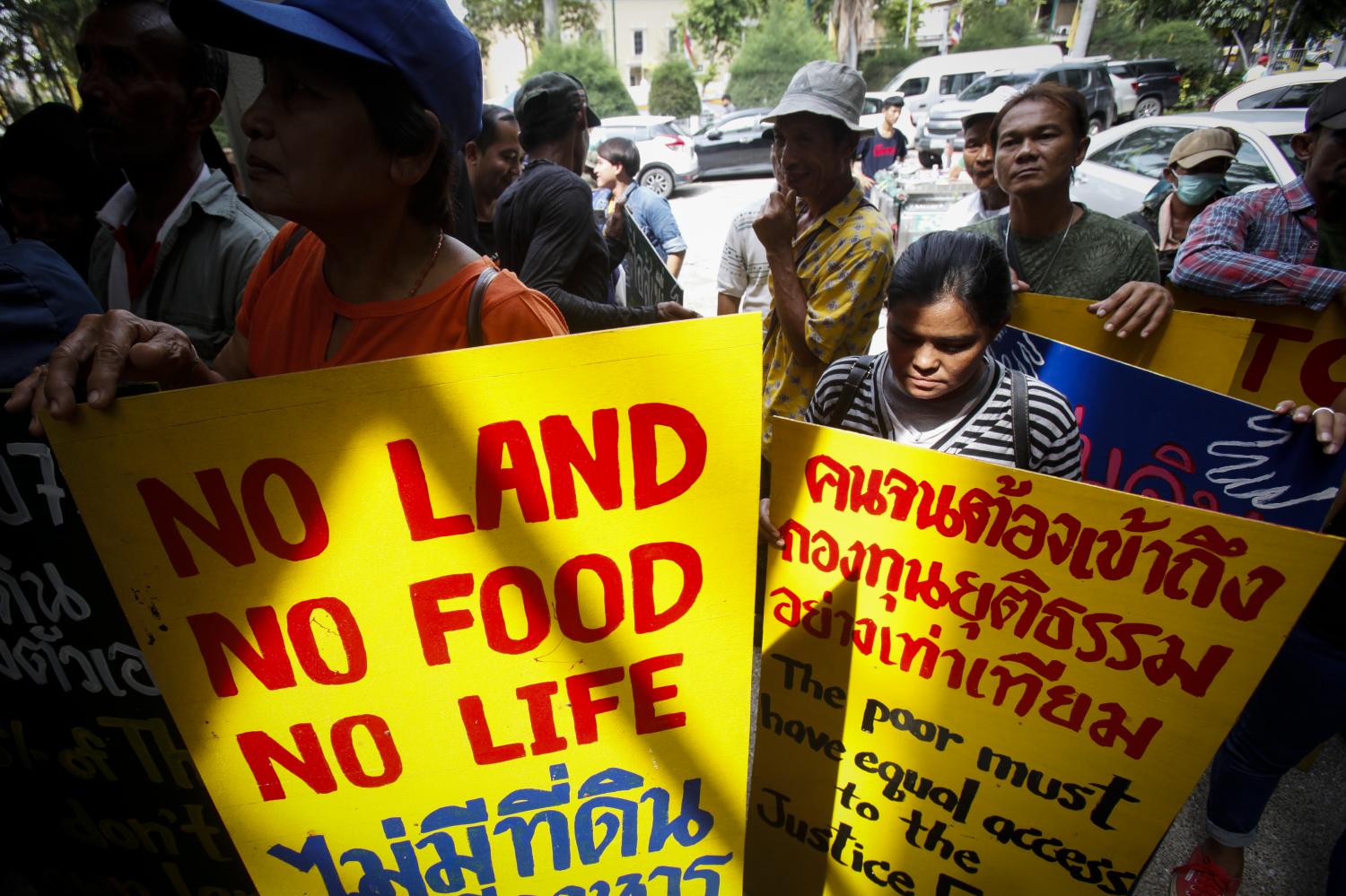
Thailand "will become a high-income country by 2036", said Prime Minister Prayut Chan-o-cha, as he spoke of his "Vision 2036" at the 74th Session of the United Nations General Assembly in New York last month.
The year 2036 is roughly about 16 years away -- and 16 years is really not a long time. Whether this vision will remain simply a pipe dream or become reality will depend very much on how much Thais -- especially Thai politicians -- are committed to achieving this goal.
Given the current political climate, where the spouting of political rhetoric has been ramped up, it seems that our politicians neither care about moving the country closer to achieving this goal, and nor do they care to even provide any useful recommendations.
Between 2005 and 2014 -- a period which roughly coincides with Thaksin Shinawatra's second term as well as his sister Yingluck's first and last term -- Thailand underwent several political crises which eventually led to chaos in the capital and culminated in two military coups.
As a result, Thailand's economic growth became unstable, and it wouldn't be far off the mark to call it a "lost decade" for the economy. Since the 2014 coup d'etat, the country's economic growth has continued to fluctuate. Last year, the economy was forecast to grow by about 4% -- a figure which reflects Thailand's real economic potential. This year, however, the figure is expected to stand at only 3%, or even lower.
Of course, we cannot rewind the lost decade. We have to move on, but to move forward and reach the milestone -- that is, becoming a high-income country -- is easier said than done given the existing hurdles, which include Thailand's volatile domestic political scene, the trade war between China and the United States, rapid technological advances, as well as demographic changes.
Thailand needs to be able to quickly adapt to new technologies to avoid losing out. Without timely adaptation, the country's export sector -- which plays a key role in driving Thailand's economic growth -- may experience further contractions.
In terms of demographics, Thais in general are getting older -- with about 10% of the population aged 60 years or more. At the same time, the country's birth rate is on the decline, which inevitably means that the number of people available to replace the country's ageing workforce is decreasing. This will become a burden for the country if it does not allocate its budget wisely and well.
Poverty, meanwhile, remains a big problem. According to a survey by the Finance Ministry, there are almost 15 million people, or 20% of the total population, who are defined as "poor", which means each of them earns no more than 100,000 baht a year.
Apart from the high poverty rate, income inequality has also widened, reflecting the failure of the country's development policies in the past decades.
Credit Suisse's 2016 Global Wealth Report ranked Thailand as the third most unequal country in the world among 215 nations and territories it surveyed. In that year, 58% of the Thailand's wealth was held by only 1% of the population. The top 1% in Russia owned 74.5% of the country's wealth, while in India, the top 1% owned 58.4%.
A study by the International Monetary Fund has found that economic growth is usually volatile in countries with wide inequality gaps. That is to say, Thailand's unsustainable economic growth partly stems from its chronic inequality problem. If the government can tackle this issue, the country is more likely to become a high-income one.
A report by released by the Finance Ministry in 2017 pointed out several dimensions to the country's inequality problem.
First, is the inequality in individual income. In 2015, the average income of the poorest 10% in Thailand was 22.1 times lower than the richest 10%. In 2000, the top 10% earned about 20.9 times more than the poorest 10%. This shows that over the past three decades, inequality has remained a problem. And this is all across the country -- although the South won the "honour" of being the most unequal region in 2015.
The second concerns property holdings and land ownership. In 2012, the top 10% of Thailand's landowners owned 61.5% of all available land in the country. Their combined land holdings were 853.6 times higher than the bottom 10% in society.
Savings are also concentrated among the elite -- as only 0.1% of all bank accounts in Thailand have a balance of 10 million baht or more. This means that 99.9% of all bank accounts registered in Thailand account for 50.8% of all money deposited in Thai banks.
Inequality is also rife in terms of education. In 2015, a study found that children from high-income families had better access to education than those from lower-income backgrounds, especially when it comes to tertiary education. Univiesrity enrollment rates for the top 10% were on average 17.4 times higher than for the bottom 10% in society.
And while Thailand's universal healthcare scheme covers 99.9% of the population, there remains an unequal distribution of medical personnel in different regions, which ultimately can also be traced back to inequality and the rural-urban divide.
In Bangkok, for instance, the doctor-to-patient ratio stands at about 1 doctor for every 716 patients. In the Northeast, however, the ratio is closer to 1 to 3,207.
With all that said, Thailand's bid to become a high-income country by 2036 will depend very much on the government's own commitment to its own goals. All Thais -- politicians or not -- must move forward, rather than deliberately bogging down the country's progress with continued political bickering and squabbling.
